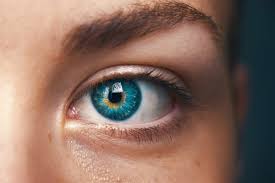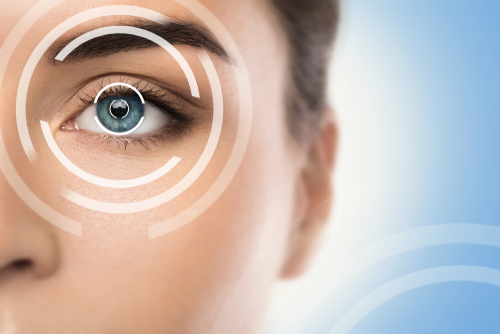Correct-refractive surgery (CRS) is a popular treatment for people who have noticeable differences in their vision, such as nearsightedness or farsightedness. By correcting these errors of refraction, CRS can help improve a person’s overall vision. In this article, we’ll give you all the information you need to know about CRS procedures, including the benefits and risks involved.
Contents
What is Correct-Refractive-Surgical Procedure?

Correct-Refractive-Surgical Procedures (CRSPs) are a type of surgery that use lasers to reshape the eyes’ lens. The surgery is usually done on people who have been diagnosed with astigmatism, an irregularity in the shape of the eye’s lens. CRSPs can improve your vision by fixing astigmatism and making your eyes look more symmetrical.
Types of procedures
Correct-refractive surgery, or refractive surgery, is a surgical procedure that helps correct your vision. There are different types of refractive surgery, and each has different recovery times. The most common type of refractive surgery is LASIK surgery. Here’s what you need to know about the different types of refractive surgery and their respective recoveries:
There are various types of procedures:
Refractive-surgical procedures
They are a type of procedure that is used to correct a person’s vision. IORPs use surgery to change the shape or size of one or more lenses in the eye.
Laser refractive surgery (LRS)
is a type of incorrect-refractive surgical procedure that uses lasers to remove and/or replace certain portions of the eye’s lens.
Subtractive laser refractive surgery (SLR)
is a type of laser refractive surgical procedure in which doctors remove part or all of the natural lenses in an eye, and then implant a prosthetic lens into the eye.
Multifocal Intraocular Lens Implants (MILs)
are artificial lenses that are placed into the eye to improve vision. MILs work by adjusting the focus of light entering the eye.
LASIK Surgery
LASIK is one of the most popular types of refractive surgery. It’s a safe and effective procedure that can help you see better without glasses or contact lenses. The recovery time for LASIK is typically short – most people recover within a couple days. However, there are some minor complications that may occur post-op, and these should be monitored by your surgeon. Most people have excellent vision after LASIK surgery!
PRK Surgery
PRK (Pupil Refraction Keratoplasty) is another popular type of refractive surgery.his results in improved vision with few if any visual side effects. Most people experience excellent vision after PRK surgery – many report seeing 20/20 or better after just a few days post-op! However, as with all surgeries, there are possible minor post-operative complications that should be monitored by your physician.
Does It Hurt?
Correct-Refractive-Surgical Procedures (CORRECTS) are a type of surgery that is used to improve the appearance of your eyes. CORRECTS can be used to reduce the amount of myopia (nearsightedness) or hyperopia (farsightedness), and can also correct other vision problems such as astigmatism. CORRECTS are usually done in two steps: the first step is a preoperative evaluation to determine your eligibility for CORRECTS and the second step is an operation.
The most common CORRECTS procedures are LASIK and PRK. LASIK is a type of CORRECTS procedure that uses a laser to reshape your cornea. PRK is a type of CORRECTS procedure that uses a special light source to remove tissue from your cornea. Both LASIK and PRK are considered safe and effective procedures, with low rates of complications.
There are several factors that can affect how you feel after a CORRECTS surgery. The most important factor is whether you have any preexisting conditions that could compromise your health before or during the surgery, including diabetes, high blood pressure, or asthma. If you have any concerns about your health before or after the surgery, please talk with your doctor.
Most people feel fine following a CORRECTS surgery; however, some people may experience minor discomfort at first, followed by mild pain and swelling in the days and weeks following the
What Are The Costs Of The Procedure?
Corrective lenses are one of the most popular surgeries in the United States. People who need them can find a variety of options, from simple contact lenses to more complicated procedures like laser eye surgery.
The cost of corrective lenses depends on a variety of factors, including the type of lens and the surgical procedure used. Contact lens costs are usually lower than those for other surgeries, but prices for laser eye surgery can be quite high.
Costs for corrective lenses typically range from around 20,000 to 1.5 lakhs per pair. Laser eye surgery usually costs more than contact lens surgery, but ranges from about 85000 to 100,000 per treatment.
What Does Refractive Surgery Correct?
Refractive lens exchange corrects presbyopia, high myopia, and hyperopia by implanting an intraocular lens into the eye’s capsular sac after the natural lens has been removed.
How Refractive Error Can Be Corrected?
Eye doctors can correct refractive errors with glasses, contact lenses, or surgery. Glasses. The simplest and safest way to correct refractive errors is with glasses.
Can Refractive Surgery Fail?
The LASIK complication rate is less than 1%. LASIK complications include infections as well as dislocation of the corneal flap. Laser vision correction surgery complications are extremely rare.
Complications and Side Effects Of Refractive Surgery
There are a few potential complications and side effects associated with refractive surgery, though these are relatively rare. One complication is abnormal vision after surgery which may be due to a missed area or an incorrect implant. Another potential complication is cataracts, which can form after surgeries to change the shape of the lens in the eye. Side effects of refractive surgery may also include blurred vision, pain, redness, and itching.
Serious LASIK complications are extremely rare, occurring in less than 1 percent of procedures. Most side effects of LASIK are temporary.
The most common side effect of LASIK is a temporary loss of vision. This can be due to a missed area, an incorrect implant, or a problem with the healing process. These side effects usually last for 1-2 days and then go away.
Serious complications following refractive surgery are extremely rare, occurring in less than 1 percent of procedures. Most side effects of refractive surgery are temporary. Serious side effects may include:
LASIK complications can include:
Abnormal vision after surgery that may be due to a missed area or an incorrect implant.
Cataracts can form after surgeries to change the shape of the lens in the eye.
Side effects of refractive surgery may also include blurred vision, pain, redness, and itching.
If you experience any of the following side effects after undergoing refractive surgery, please consult with your ophthalmologist or other health care professional:
- Increased sensitivity to light
- Reduced vision in one or both eyes
- Double vision
- Blurred or fuzzy vision
- Eye pain that does not go away
- The vision that changes over time
Conclusion
It may be concluded that correct refractive surgery procedures are safe, effective, and can provide excellent vision. Patients should discuss their options with a qualified surgeon before making a decision.
Correct refractive surgery has become an increasingly popular option for people seeking improved vision. Procedures such as cataract surgery and refractive laser surgery are safe and effective, with few side effects. Patients should discuss their options with a qualified surgeon before making a decision.
Lasik surgery is a safe 10-minute procedure to help you get rid of glasses. MantraCare offers the most advanced Lasik options. If you have any questions on lasik surgery feel free to reach out to us at +91-9711116605. We provide effective Lasik surgery in Delhi.
